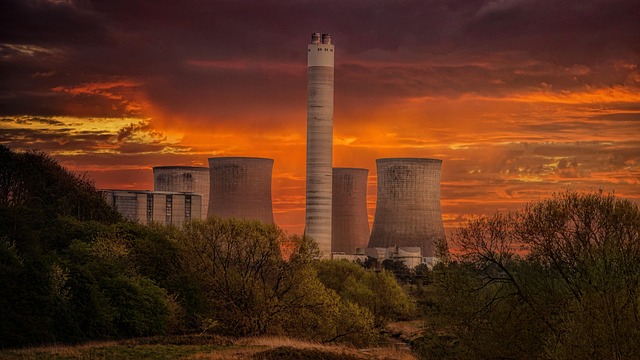Gas water heaters, though common, are energy inefficient due to constant hot water storage. Tankless gas systems offer a more efficient alternative by heating water only on demand, significantly reducing energy costs and environmental impact. These modern systems provide instant hot water, enhance convenience, and last longer. Upgrading to an energy-efficient gas water heater can cut utility bills drastically. Consider system age, repair history, and energy consumption before upgrading. Research tankless gas options, plan installation carefully, and follow safety guidelines for optimal energy conservation.
Looking to slash your monthly utility bills? Upgrading to an energy-saving gas water heater could be one of the best decisions you make. These efficient appliances significantly reduce energy consumption, providing long-term cost savings without compromising performance. This article delves into the workings of gas water heaters, highlights the advantages of opting for an energy-efficient model, and offers a straightforward guide to installing your own money-saving solution.
- Understanding Gas Water Heaters and Their Energy Consumption
- The Benefits of an Energy-Efficient Gas Water Heater
- A Step-by-Step Guide to Installing a Savings-Oriented Model
Understanding Gas Water Heaters and Their Energy Consumption

Gas water heaters are a common fixture in many homes, providing hot water on demand. However, understanding their energy consumption is crucial when considering how to reduce monthly utility bills. Traditional gas water heaters, often referred to as tank water heaters, heat and store large volumes of water in an insulated tank. While this ensures a constant supply of hot water, it can lead to significant energy wastage, as the water in the tank continues to heat even when not in use.
In contrast, tankless gas systems, also known as on-demand or instant water heaters, offer a more energy-efficient alternative. These systems heat water only when needed, eliminating the energy loss associated with maintaining a hot water storage tank. This technology is particularly beneficial for residential water heating, providing hot water systems that are both cost-effective and environmentally friendly. By choosing energy-efficient gas heating options like propane or natural gas heaters, homeowners can enjoy substantial savings on their monthly utility bills while contributing to a more sustainable future.
The Benefits of an Energy-Efficient Gas Water Heater

An energy-efficient gas water heater offers numerous benefits for homeowners looking to reduce their monthly utility bills and minimize their environmental impact. By adopting a modern, high-efficiency gas water heating system, such as tankless gas systems or natural gas heaters, you can enjoy significant cost savings. These advanced hot water systems are designed to provide abundant hot water while consuming less energy, thereby reducing your reliance on fossil fuels and lowering your carbon footprint.
In addition to financial benefits, energy-efficient gas water heaters contribute to a more comfortable living environment. They deliver instant hot water, eliminating the need to wait for traditional tank water heaters to heat up. This enhances convenience and satisfaction in daily activities, such as showering or doing laundry. Moreover, with improved heating technology, these systems are built to last longer, ensuring reliable residential water heating for years to come, regardless of whether you opt for propane water heaters or gas fired heaters.
A Step-by-Step Guide to Installing a Savings-Oriented Model

Installing an energy-efficient gas water heater is a straightforward process that can significantly reduce your monthly utility bills. Here’s a step-by-step guide to help you navigate this transition smoothly. First, assess your current hot water system and determine if it’s time for an upgrade, considering factors like age, repair history, and energy consumption. Next, research the various options available, focusing on gas water heaters that offer advanced features like tankless gas systems. These modern solutions heat water on-demand, eliminating the need for a storage tank, thereby enhancing energy efficiency.
Once you’ve chosen your preferred gas water heater, carefully plan the installation location, ensuring easy access to both water lines and electrical outlets if a tankless system is selected. Professional assistance is recommended for complex setups like propane water heaters or residential water heating with multiple fixtures. Follow manufacturer guidelines for the best results, including proper ventilation and safety measures. After installation, test the system thoroughly and adjust temperature settings to align with your household’s needs while maximising energy conservation, thereby enjoying the benefits of energy efficient heating through your new gas fired heaters.
Upgrading to an energy-saving gas water heater is a smart move for anyone looking to reduce their monthly utility bills and lower their carbon footprint. By understanding how these heaters work and choosing a model designed for efficiency, homeowners can enjoy hot water while conserving energy. The installation process is straightforward, making it an accessible way to make your home more sustainable without compromising on comfort. Embrace the benefits of modern technology and start saving today!
